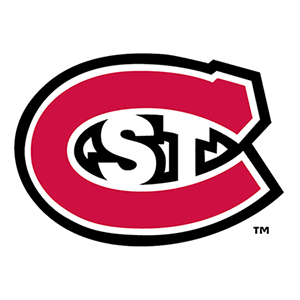Student Advising Resources
SCSU Advising Resources
Use the frequently asked questions on this page to get pointed in the right direction to find a solution to your inquiry.Depending on their major and how far they have progressed in their degree, a student may have a Student Success Advisor, a Faculty Advisor, or a Student Success Coach.
- Student Success Advisor – Serves as the primary academic advisor for a student early in their academic career, typically through their sophomore year.
- Faculty Advisor – When the student reaches upper level standing, typically around the start of their junior year, they will transition from a Student Success Advisor to a Faculty Advisor to support their academic advising and planning.
- Student Success Coach – Often the same person who served as the Student Success Advisor, this person provides ongoing support through academic coaching, regular check-ins, and assistance in identifying resources. The Student Success Coach remains with the student throughout their undergraduate experience at SCSU
There are general requirements all bachelor degree-seeking undergraduate students must satisfy in order to graduate.
- Complete 120 credits
- At least 40 credits must be 300-level or higher
- At least 30 credits must be taken at SCSU
- Complete Requirements of the Liberal Education curriculum
Connect with your advisor regarding any credits you plan to transfer to SCSU.
- MN State Credits (does not include University of Minnesota): If you took courses from a Minnesota State system college or university after you attended St. Cloud State, complete our online Electronic Transcript Evaluation Request Form.
- Other College credit: If you took courses from any other college or university after you attended St. Cloud State, request an official transcript be sent to the Office of Records and Registration
- AP and IB credits
- JST: St. Cloud State has a long-standing practice of honoring veterans. In an effort to help make veterans’ transition to life at St. Cloud State, we encourage you to have your official military transcript evaluated for possible credit. Official transcripts should be sent to the Office of Records and Registration, AS 118, 720 Fourth Ave South, St. Cloud, MN 56301.
- Air Force veterans will need their CCAF transcripts; Army, Navy, Marine Corps, and Coast Guard veterans will need JST transcripts.
- For more detailed information on how military service courses intersect with university courses, veterans are encourage to read ACE’s Guide to the Evaluation of Educational Experience in the Armed Services.
Office of Records and Registration
St. Cloud State University
118 Administrative Services Building
720 Fourth Ave. S.
St. Cloud, MN. 56301-4498
You may contact the Office of Records and Registration to confirm receipt of official transcript(s).
Sign into e-Services to see which courses were accepted for transfer. Click Grades/Transcripts and then click Interactive Degree Audit Report.
Stop Out - Reach out to your Student Success Advisor or Coach and notify them of your plans. If you are currently registered for courses you will need to discuss with your advisors your best options. If you are registered for a future semester you will want to drop those courses.
Returning – If you previously attended St. Cloud State and are returning to finish your undergraduate degree, you do not need to reapply for admission. You can call (320) 308-6075 or email advising@stcloudstate.edu to get connected to an advisor.
If you have earned your undergraduate degree from St. Cloud State and want to return to for an additional undergraduate degree, follow these steps:
- Contact the Office of Records & Registration
- Consult with a graduation evaluator by calling (320) 308-2111 or emailing registrar@stcloudstate.edu. The evaluator will obtain information from you, explain your options, discuss University policies and procedures, and provide instructions tailored to your goals.
To update your contact information, including your phone number and mailing address, sign into your e-Services account with your Star ID and password. If you need assistance, contact (320) 308-2111 or registrar@stcloudstate.edu
- Click Account Management, located on the left side of the screen.
- Then click Address Info.
- Review and update your local, permanent and diploma addresses.
(Note: the latter is the address where we will mail your diploma.)
Students interested in studying abroad can explore available programs and consult with an Education Abroad advisor before meeting with their Success Advisor.
New incoming students planning to study abroad during spring semester need to work with their advisor during Huskies Advising & Registration Days to plan out your first and second semester schedules.
